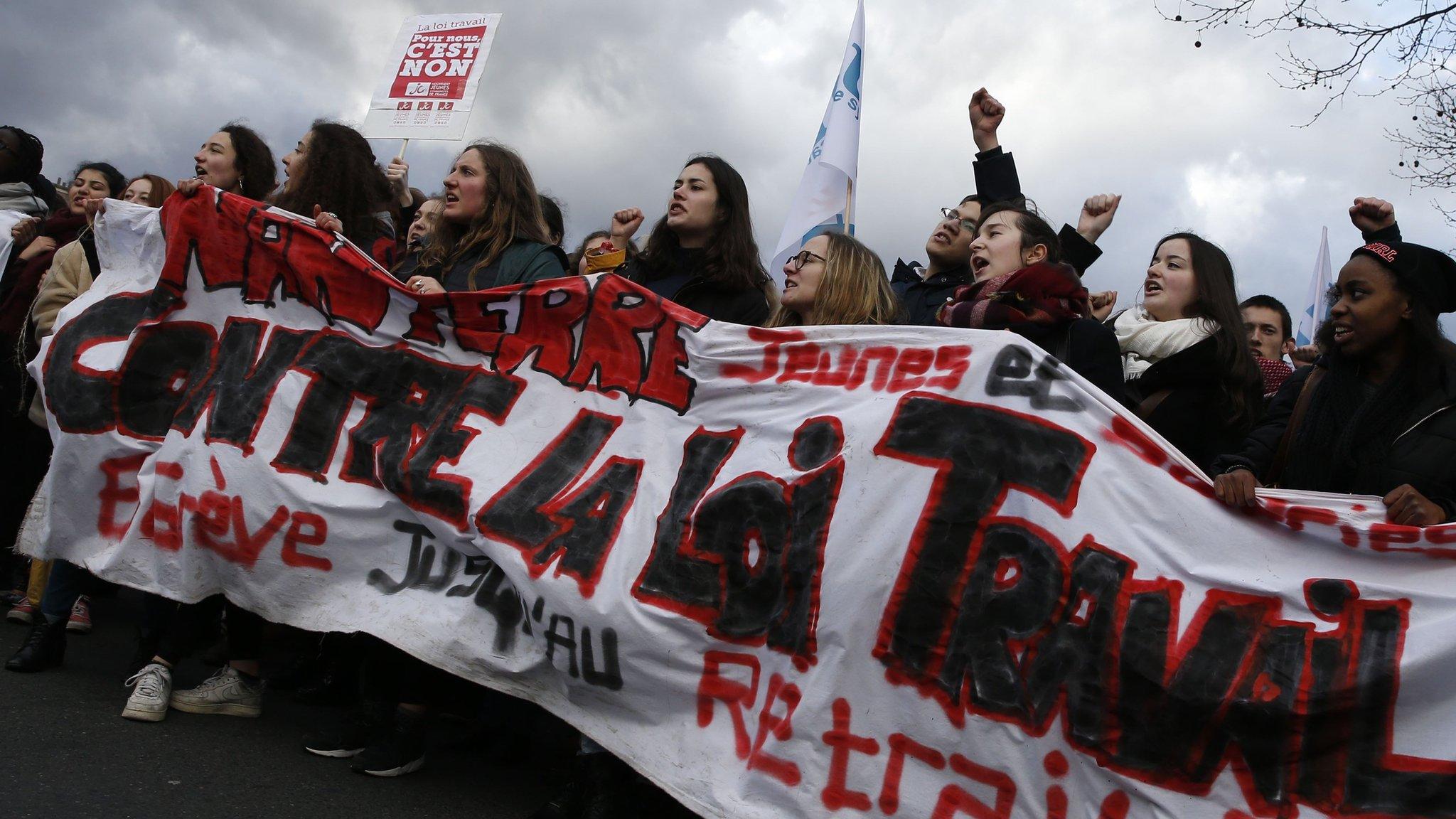France labour reforms: Protests as government pushes through bill
- Published
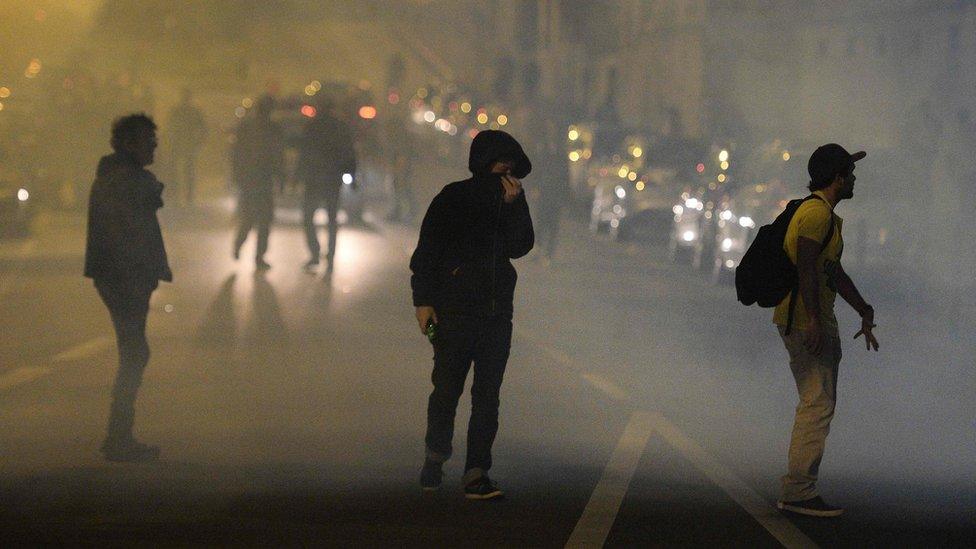
Smoke filled the streets in Nantes as demonstrators scuffled with anti-riot police
Protests have broken out across France after the government forced through controversial labour reforms.
In Nantes, protesters clashed with security forces. In Paris police fired tear gas at demonstrators outside the National Assembly.
Earlier, the cabinet approved using special powers to pass the changes without parliamentary approval.
France's Socialist government says the reforms are essential to help cut high levels of unemployment.
Two centre-right opposition parties have called a vote of no confidence in the government to be held on Thursday.
The changes to the labour laws make it easier for employers to hire and fire but opponents fear they will also enable employers to bypass workers' rights on pay, overtime and breaks.
President Francois Hollande has faced months of resistance to the bill from students, unions and even members of his own Socialist Party.

French labour reform bill - main points
The 35-hour week remains in place, but as an average. Firms can negotiate with local trade unions on more or fewer hours from week to week, up to a maximum of 46 hours
Firms are given greater freedom to reduce pay
The law eases conditions for laying off workers, strongly regulated in France. It is hoped companies will take on more people if they know they can shed jobs in case of a downturn
Employers given more leeway to negotiate holidays and special leave, such as maternity or for getting married. These are currently also heavily regulated

Demonstrators outside the National Assembly called for President Hollande to resign. Protests continued into the night.
Police used tear gas against protesters in Grenoble and Montpellier, reports from social media say. There were also demonstrations in Lille, Tours and Marseille.
In Toulouse two young protesters were injured in clashes with police, according to Le Parisien, external (in French).
The decision to invoke an article of the constitution to force through the reforms was made after the government failed to reach a compromise on the bill with a group of rebel Socialist MPs.
This tactic has only been used once before under President Hollande, again to push though disputed economic reforms.
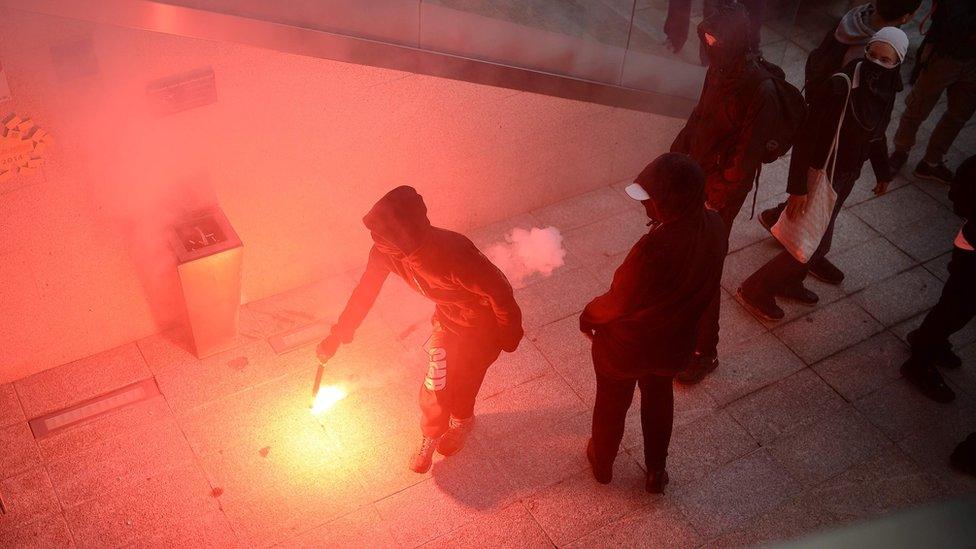
Waves of sometimes violent demonstrations have followed the passage of the bill
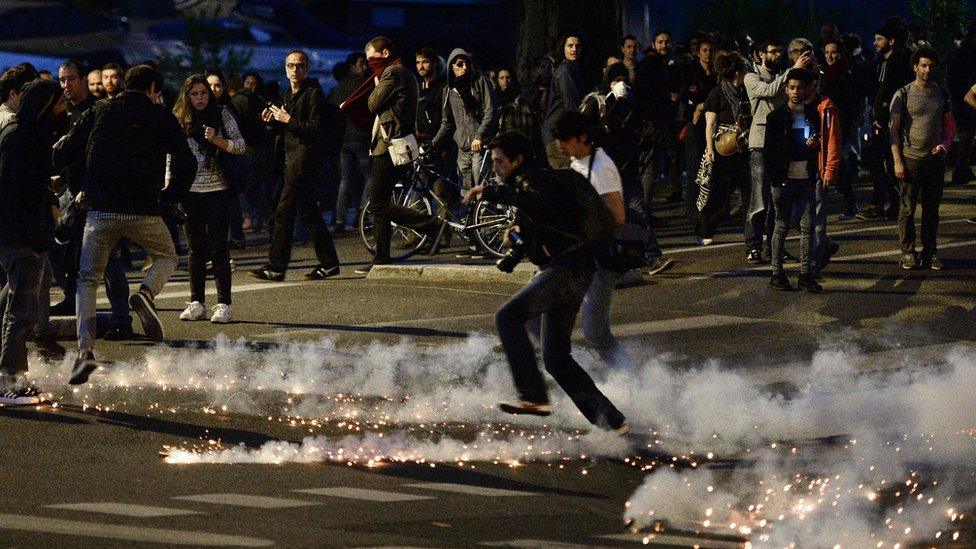
Hundreds gathered in Paris calling for President Hollande to resign
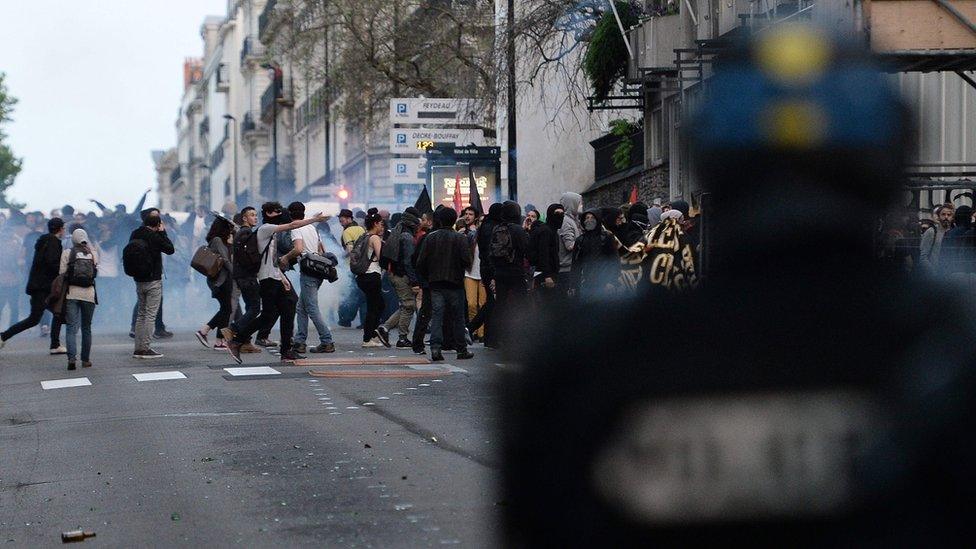
Opponents of the bill warn it will erode workers' rights
Prime Minister Manuel Valls was booed by MPs from the far left and the conservative opposition when he announced the cabinet's decision to the National Assembly.
"Pursuing the debate in parliament would pose the risk of... abandoning the compromise that we have built," he said.
The only way the bill can now be stopped is by the motion of censure - a vote of no confidence - that was filed by two right-wing parties on Tuesday.
Between them they have 226 of the 288 votes needed to topple the government on Thursday.
However, correspondents say they are unlikely to find enough left-wing MPs willing to support them.
Fresh protests are set to be held on Thursday to coincide with the confidence vote.

Voices from the Paris protests
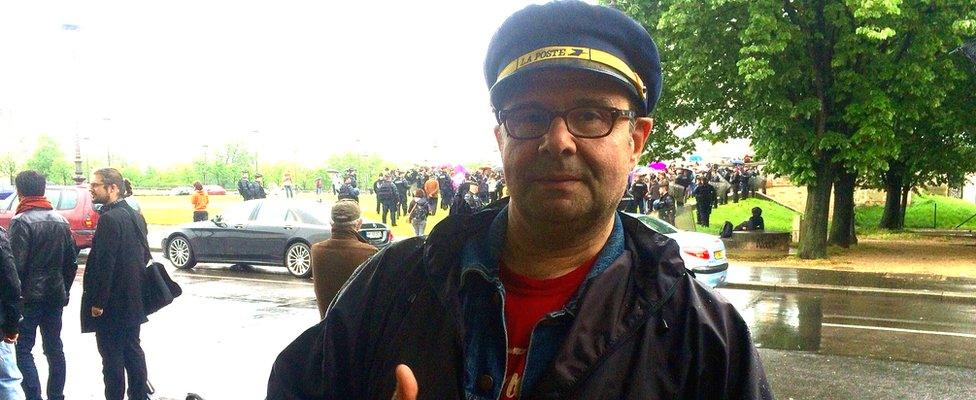
Nicholas: "The government is forcing through this law, so we decided to come here. We are not stuck in one place, we are everywhere where it matters. We want to show that people have a voice."
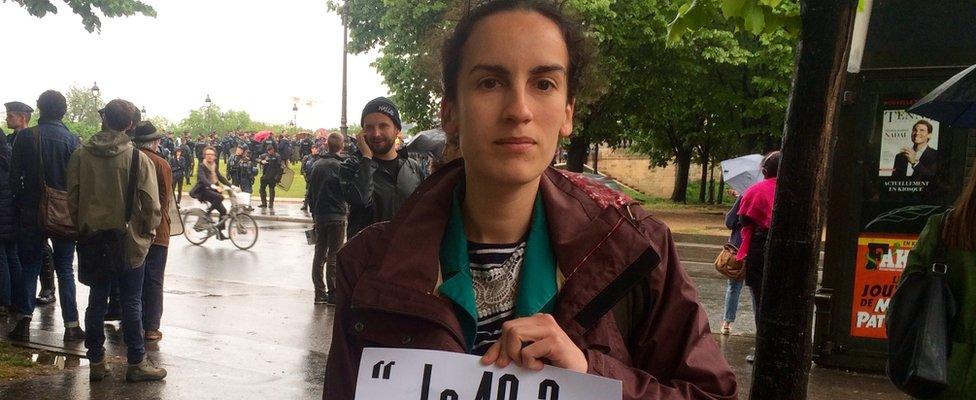
Anais, 31, student: "I'm here for real democracy. Without repression."
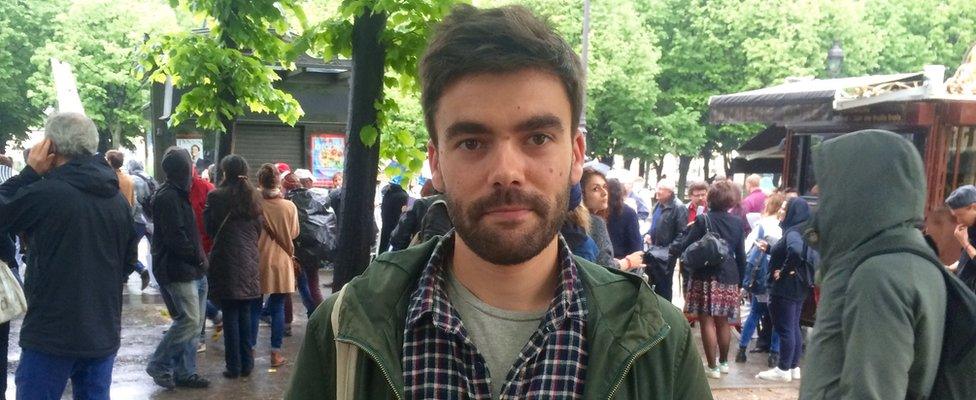
Benoit Coquin, 26: "I think that it's a law that's beginning to destroy the structure of working rights."

- Published28 April 2016
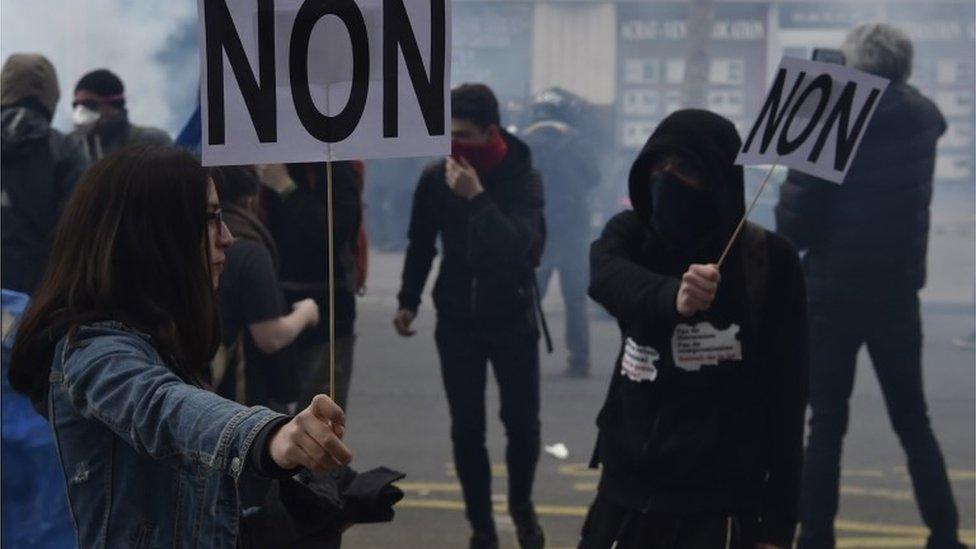
- Published20 April 2016
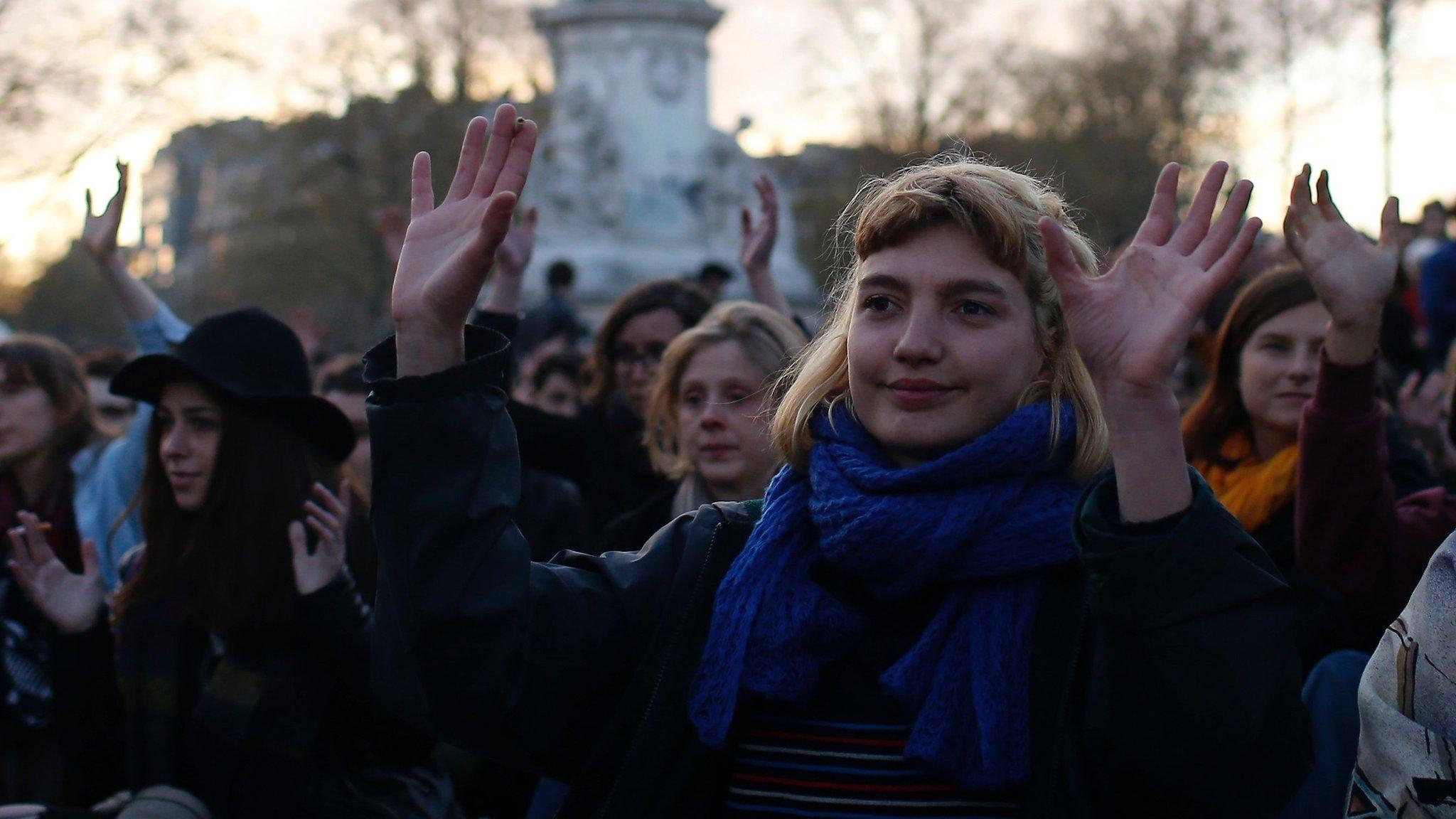
- Published31 March 2016
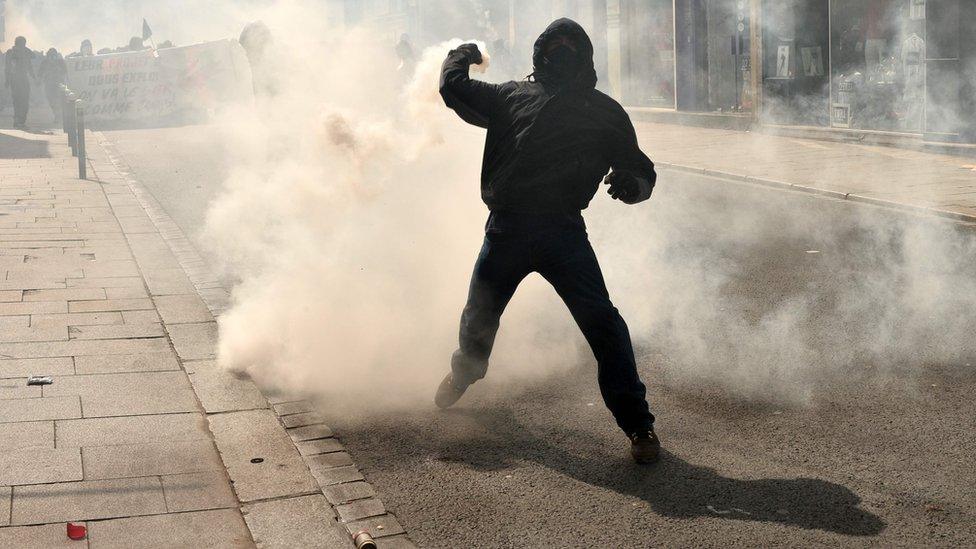
- Published9 March 2016
